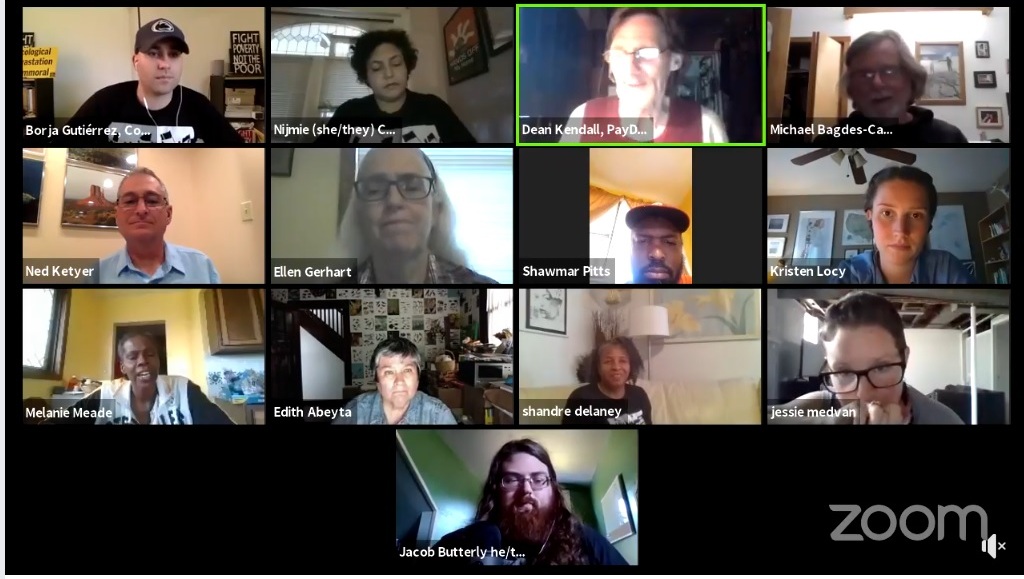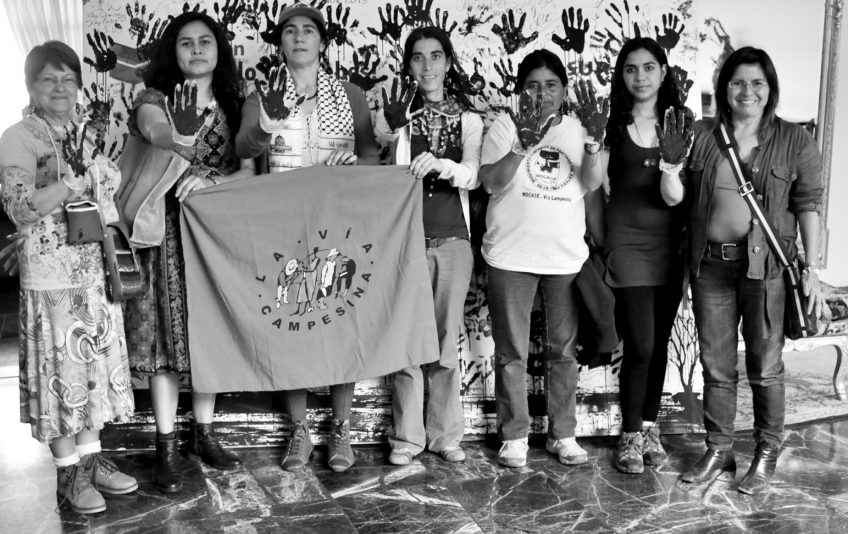Industrial agriculture is the main thief
Speech by Dean Kendall, subsistence farmer and member of Payday, 13 June 2020
This speech was presented at the virtual event We Can’t Go Back: The Plague of Ecological Devastation in Pennsylvania organised by the Pennsylvania Poor People’s Campaign: A National Call for Moral Revival.
For information on the campaign for a Care Income and to endorse the Open letter, follow this link.
Dean’s speech starts at 1h 20min.

I’m Dean Kendall, a 72-yr-old subsistence farmer and a member of Payday, a network of men campaigning with the Global Women’s Strike for a world that invests in caring not killing, and along with them now also part of this Poor Peoples Campaign.
By subsistence farmer I just mean I grow for own use, letting me scrape by on a pittance of social security and meager wages from odd jobs. I don’t make an income from the farming.
But that isn’t so different from most farmers these days, who must work off-farm jobs to stay afloat. I don’t know the stat for PA, but last year over half of US farmers had farm income below zero. Most are trapped in a corporate-driven system of chemicalized industrial farming designed to extract and pocket every last bit of profit from our work.
And the environmental devastation that comes with it Is catastrophic.
I’ll get to that in a moment, but there’s another kind that may seem small potatoes next to it, but isn’t – so-called ‘development’, a threat my small farm and its woodlands faced at the peak of the housing bubble. We waged a 7-year fight and won a conservation easement that protects it from that – tho not from the ‘eminent domain’ with which pipelines are imposed. But all is at risk until we win everything, and as our campaign flyer said, “so much… has already been lost, that saving even the least bits of what remains is crucial.” It’s all that’s holding off utter collapse of the whole web of life.
But Industrial ag is the main thief:
- It impoverishes and poisons land, waters, farmworkers, farmers, communities…
- It annihilates forests, prairies, wetlands and all within them, the very web of life on which our own lives depend:
- and it kills the soil, the root cause of
- both global warming and its floods, droughts, heat waves, wildfires, super-storms;
- and the nutrient-poor food that along with the poisons results in our growing pandemic of chronic disease.
Most farmers of course care about the land and what we produce. We want out of this disastrous system that doesn’t care about anything but corporate profit. And by switching from chemicals to regenerative methods we can restore soil health, and with it healthy plants that shrug off pests and disease and produce healthy food in abundance.
But keeping afloat financially while switching isn’t a piece of cake and can take a few years, during which on-farm income may drop even further.
Yet more and more are going that way. And we can all go that way.
Industrial ag, while destroying the very basis of life, feeds less than a third of us globally.
Small-scale farmers using and promoting regenerative methods, along with fishers, herders and others – largely of color, including Indigenous, at least half of them women – still feed more than 2/3s of the world’s people.

And they’re organizing, especially in the Global South but also the North including the US, some 200m in just La Via Campesina. It’s a largely rural movement that continues to grow and gain strength – and will grow stronger still as urban and rural movements come together,
This Poor People’s Campaign is part of that coming together, and with greater farmer involvement can be more so.
The international campaign for a Care Income Now! “for all those, of every gender, who care for people, the urban and rural environment, and the natural world” – which the Global Women’s Strike and Payday are involved in and the PA Poor Peoples Campaign has endorsed – is also part of that coming together.
A Care Income could also support farmers transitioning off the chemical farming treadmill into the urgenty needed regenerative work that can pull our planet back from the brink.
If there are farmers or kindred listening who may be interested in getting involved, we’d love to hear from you.
Forward together!
